“Our dreams of being better teachers are coming true and we thank you for your support and this opportunity.”
One can hardly wish for a higher reward than this kind of feedback from a student.
Evidence-based practice is already a familiar concept in nursing, and in education it is clear, that the content that is being taught, ought to be evidence-based. But evidence-based teaching is more, than content. Nurse educators need evidence-based knowledge in designing curriculum and selecting appropriate teaching and learning methods (Kalb et al., 2015). Evidence-based teaching can be seen as a decision-making process including the best available evidence about teaching and learning, and also expertise and judgment of the educator and the preferences and goals of the learners (Oermann, 2021). Furthermore, nurse educators need to be able to facilitate the future nurses in their profession, so that they are familiar with processes and implementation of evidence-based practice (Kajander-Unkuri et al., 2020).
Evidence-based Teaching study unit is the fourth study unit of Empowering the nurse educators’ in the changing world (ENEC) study programme. The study programme is aimed for nurse educator candidates and educators in Europe. The study programme can be utilised as Continuous professional development (CPD) activity or as a part of degree education in nursing and health sciences educator education. University of Eastern Finland has been the coordinator and main organiser of this study unit.
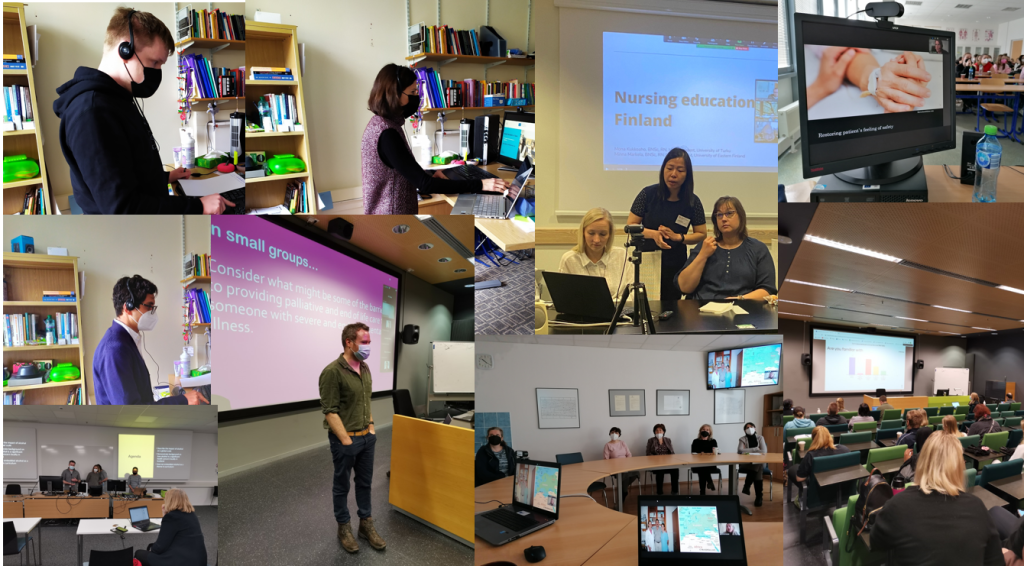
Evidence-based teaching study unit was organized as hybrid implementation. Majority of the activities were conducted online, but the students of the study unit performed a teacher training in one of the partner universities in international groups. Due to pandemic situation and the war in Ukraine, that has especially affected the neighbouring countries, the students were allowed to participate the teacher training also online. In addition to teacher evaluations, the study programme utilised both self- and peer evaluation as one of the learning methods, as they both can be even more beneficial than educator evaluation, even though the self- and peer evaluation don’t always concur (Iglesias Pérez et al., 2022). The students also received feedback from the students who they were teaching during their teacher training sessions.
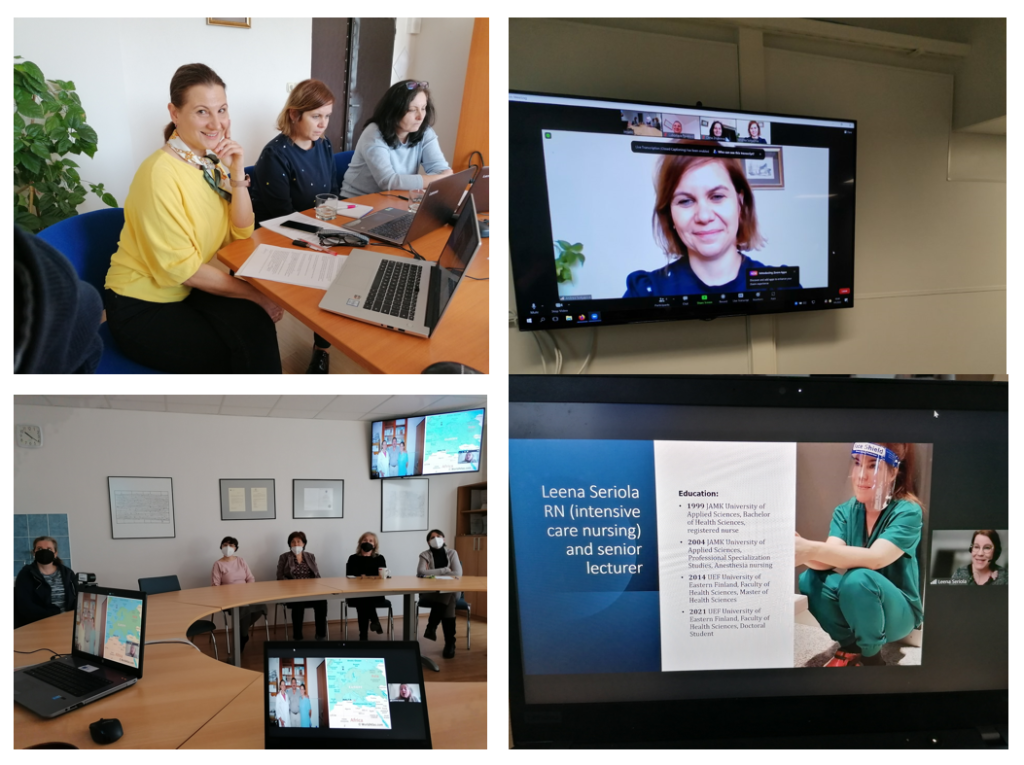
As in the beginning of this blog, students experienced the teacher training beneficial to them. Furthermore, the partners hosting the teacher trainees, also had a good experience with the international students:
“The students managed to engage colleagues in a stimulating discussion about differences and similarities between the countries and I believe that everyone learned a lot. I was very impressed about their well-planned and structured lesson.”
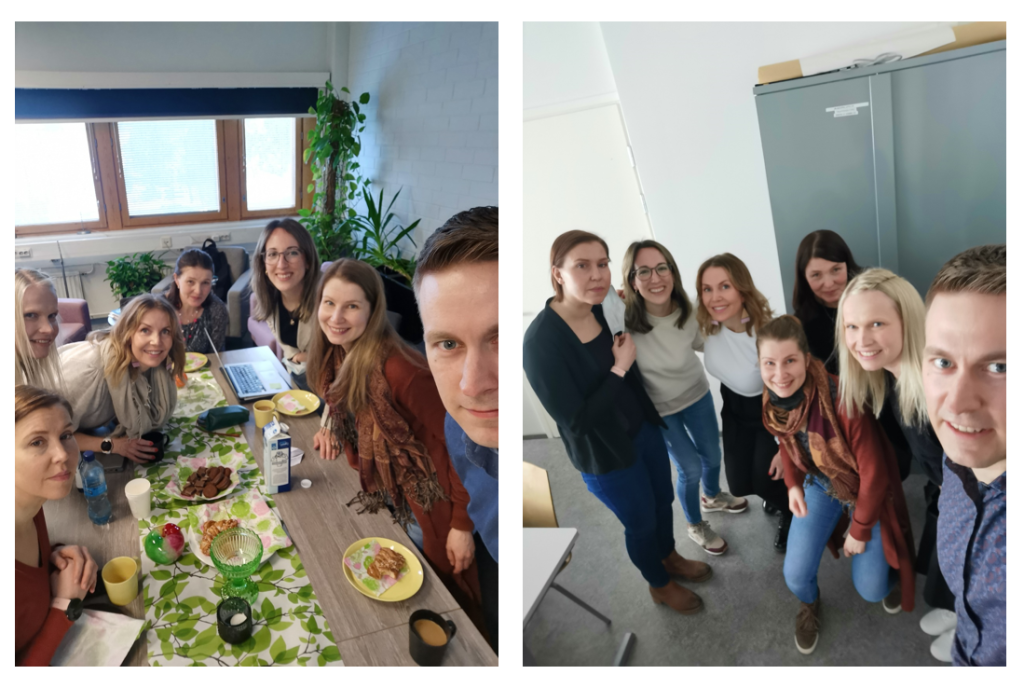
The impact of visiting students went beyond the teacher training they had during the training week. They met with the faculty and students at the universities, universities of applied sciences, colleges, Hospital districts, vocational institutes and many other collaborators and have made great impression on the hosts of the training.
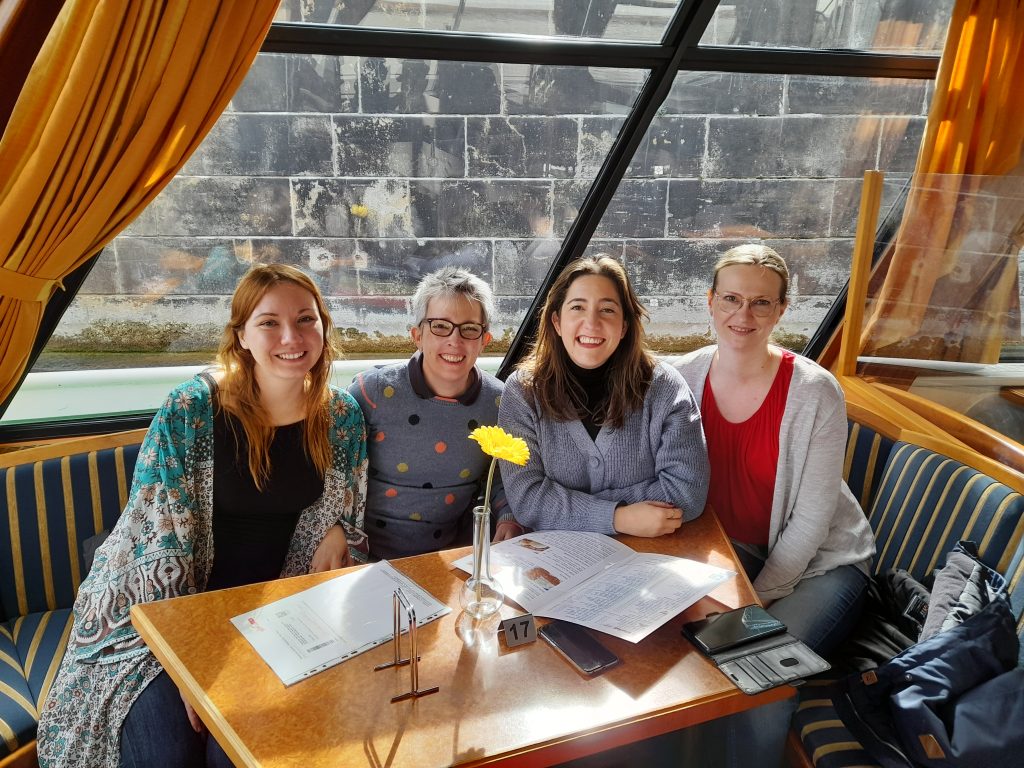
“Just as feedback, your Erasmus students are wonderful. They’ve been well prepared and have spent lots of time considering how to approach the teaching sessions. They deliver well and have helped each other.”
“I loved their use of a hospital soundtrack – beeping, phones ringing – to help explain how stressful the backdrop is in a hospital. That worked really well. They used clever QR code links to mentimeter and tried to engage a slightly stubborn year 1-2 audience. I have to learn how to do that!”
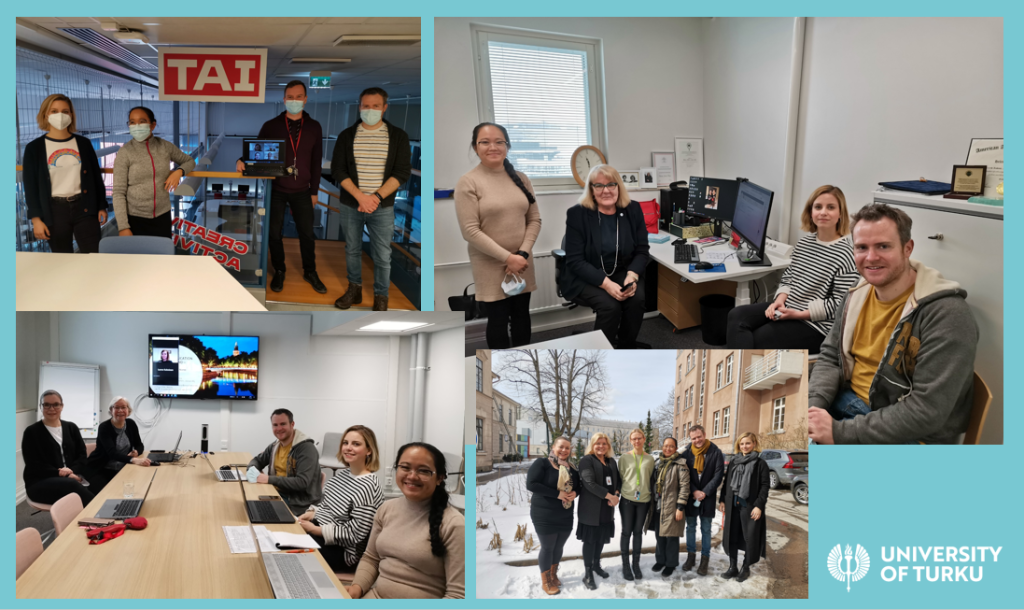
The evidence based teaching study unit was a very intensive yet beneficial study unit. Both teachers and students had immense opportunities to share experiences and learn from each other, beyond the content of the study unit. All of the hosts arranged some extra curricular activities and possibilities to learn about the culture and quisine of the hosting country.

On behalf of teams UTU and UEF and the whole New Nurse Educator -project, we thank all our collaborators, faculty and students for a great study unit.
Faculty and students of the Nursing Department and Physiotherapy Department in the Universitat Internacional de Catalunya
Nursing, physiotherapist and medical staff from the Hospital Universitari General de Catalunya-Grupo Quironsalud, in special Sara Cano and Montserrat Granados.
Staff of the Faculty Hospital in Nitra
Staff and students from Constantine the Philosopher University in Nitra
Ms. Lorraine Close, Ms. Ally Lai and Dr. Sarah Rhynas from The University of Edinburgh.
Students and staff of The University of Edinburgh
Ms Carmen D’Amato, Director of Nursing, Ms. Bernice Zarb and Mr. Mathew Abela, Mater Dei Hospital, Malta.
Students and staff of University of Malta
Staff and students of the Institute of Health and Nursing Science at Charité Universitätsmedizin Berlin
Students and staff from Savonia University of Applied Sciences
Clinical nurse educators and staff from Kuopio University Hospital
Mika Alhonkoski and the students in practical nursing, Turku Vocational Institute
Öhberg Isa and the student nurses, Turku University of Applied Sciences
Merja Nummelin, the coordinator of clinical nurse educators and the clinical nurse educators from Turku University Hospital
Karolina Olin and Karoliina Marjaniemi, County Patient Safety Control Center at Turku University Hospital
Camilla Strandell-Laine, Novia University of Applied Sciences
Professor Helena Leino-Kilpi, Assistant Professor Anna Axelin and the students of Future health and Technology from University of Turku
And on behalf of all the staff and students of the New Nurse Educator -project, we want to thank Anneli Vauhkonen, Terhi Saaranen and Juha Pajari from University of Eastern Finland for organizing the study unit Evidence Based Teaching.
Authors are:
Imane Elonen, MNSc, Doctoral researcher, University of Turku
Anneli Vauhkonen, MNSc, Doctoral researcher, University of Eastern Finland
References
Iglesias Pérez, M. C., Vidal-Puga, J., & Pino Juste, M. R. (2022). The role of self and peer assessment in Higher Education. Studies in Higher Education, 47(3), 683-692.
Kajander-Unkuri S., Melender H-L., Kanerva A-M., Korhonen T., Suikkanen A. & Silén-Lipponen M. (2020) Sairaanhoitajan osaamisvaatimukset – suomalainen koulutus 2020-luvulle. Teoksessa: Silén-Lipponen M. & Korhonen T. (toim.). Osaamisen ja arvioinnin yhtenäistäminen sairaanhoitajakoulutuksessa – YleSHarviointi-hanke. Kuopio: Savonia-ammattikorkeakoulun julkaisusarja 5/2020, 22-30. https://www.theseus.fi/handle/10024/347289
Kalb K.A., O’Conner-Von S., Brockway C., Rierson C.L. & Sendelbach S. (2015) Evidence-based teaching practice in nursing education: faculty perspectives and practices. Nursing Education Perspectives 36(4), 212-219.
